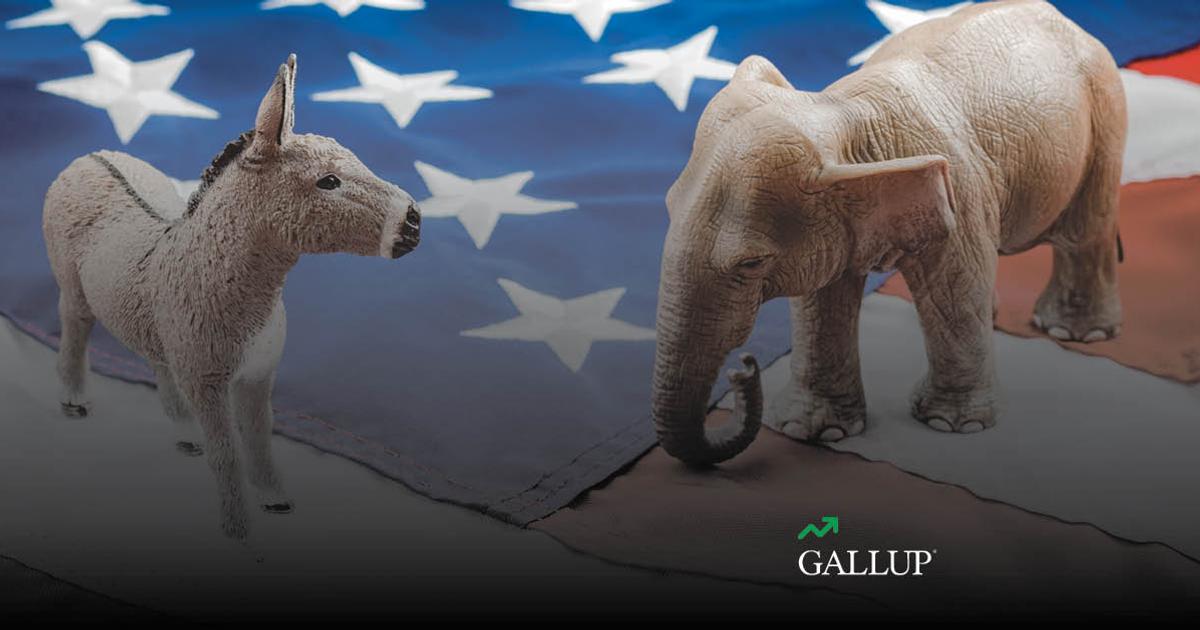- Joined
- Sep 5, 2008
- Messages
- 453
- Reaction score
- 51
- Gender
- Undisclosed
- Political Leaning
- Undisclosed
On December 17, 2020, Gallup polling found thatWell...
It's a good thing that Democrats make up only 29% of the American population.
View attachment 67421701

Party Affiliation
In politics, as of today, do you consider yourself a Republican, a Democrat, or an Independent? (Asked of independents: As of today, do you lean more to the Democratic Party or the Republican Party?)news.gallup.com
This means that "80% of Democrats" is a really, really small number.
Face it...the Electoral College is here to stay.
btw, that dishonest end run around the Constitution...the National Popular Interstate Compact...has already failed, since it depends upon liberal-controlled state legislatures. There just aren't enough of them to make it work.
31% of Americans identified as Democrats,
25% identified as Republican, and
41% as Independent.
The National Popular Vote bill simply again changes state statutes, using the same constitutional power for how existing state winner-take-all laws came into existence in 48 states in the first place.
Maine (in 1969) and Nebraska (in 1992) chose not to have winner-take-all laws. The bill will guarantee the majority of Electoral College votes and the presidency to the candidate who wins the most popular votes in the country.
The bill changes state statewide winner-take-all laws (not mentioned in the U.S. Constitution, but later enacted by 48 states), without changing anything in the Constitution, using the built-in method that the Constitution provides for states to make changes.
States are agreeing to award their 270+ electoral votes to the winner of the most national popular votes, by simply again changing their state’s law.
In 2018, the National Popular Vote bill in the Michigan Senate was sponsored by a bipartisan group of 25 of the 38 Michigan senators, including 15 Republicans and 10 Democrats.
The bill was approved in 2016 by a unanimous bipartisan House committee vote in both Georgia (16 electoral votes) and Missouri (10).
In 2016 the Arizona House of Representatives passed the bill 40-16-4.
Two-thirds of the Republicans and two-thirds of the Democrats in the Arizona House of Representatives sponsored the bill.
In January 2016, two-thirds of the Arizona Senate sponsored the bill.
In 2014, the Oklahoma Senate passed the bill by a 28–18 margin.
In 2009, the Arkansas House of Representatives passed the bill.
NY and CA enacted it with bipartisan support.
On March 25, 2014 in the New York Senate, Republicans supported the bill 27-2; Republicans endorsed by the Conservative Party by 26-2; The Conservative Party of New York endorsed the bill.
In the New York Assembly, Republicans supported the bill 21–18; Republicans endorsed by the Conservative party supported the bill 18–16.
The bill has passed 41 state legislative chambers in 25 rural, small, medium, large, Democratic, Republican and purple states with 283 electoral votes, including one house in Arizona (11), Arkansas (6), Maine (4), Michigan (15), Minnesota (10), North Carolina (16), Oklahoma (7) and Virginia (13), and both houses in Nevada (6).
The bill has been enacted by 16 small, medium, and large jurisdictions with 195 electoral votes
State legislators in states with 75 more electoral votes are needed to enact the National Popular Vote bill.
83% of America’s state legislatures are up for grabs in 2022.
